North Carolina Hunting Guide
North Carolina’s diverse habitat presents strong hunting opportunities for large and small game. The state’s two largest forests, the Nantahala and Pisgah, support a large amount of deer in particular.
What to Hunt
North Carolina’s wilderness offers many different species for hunters to enjoy.
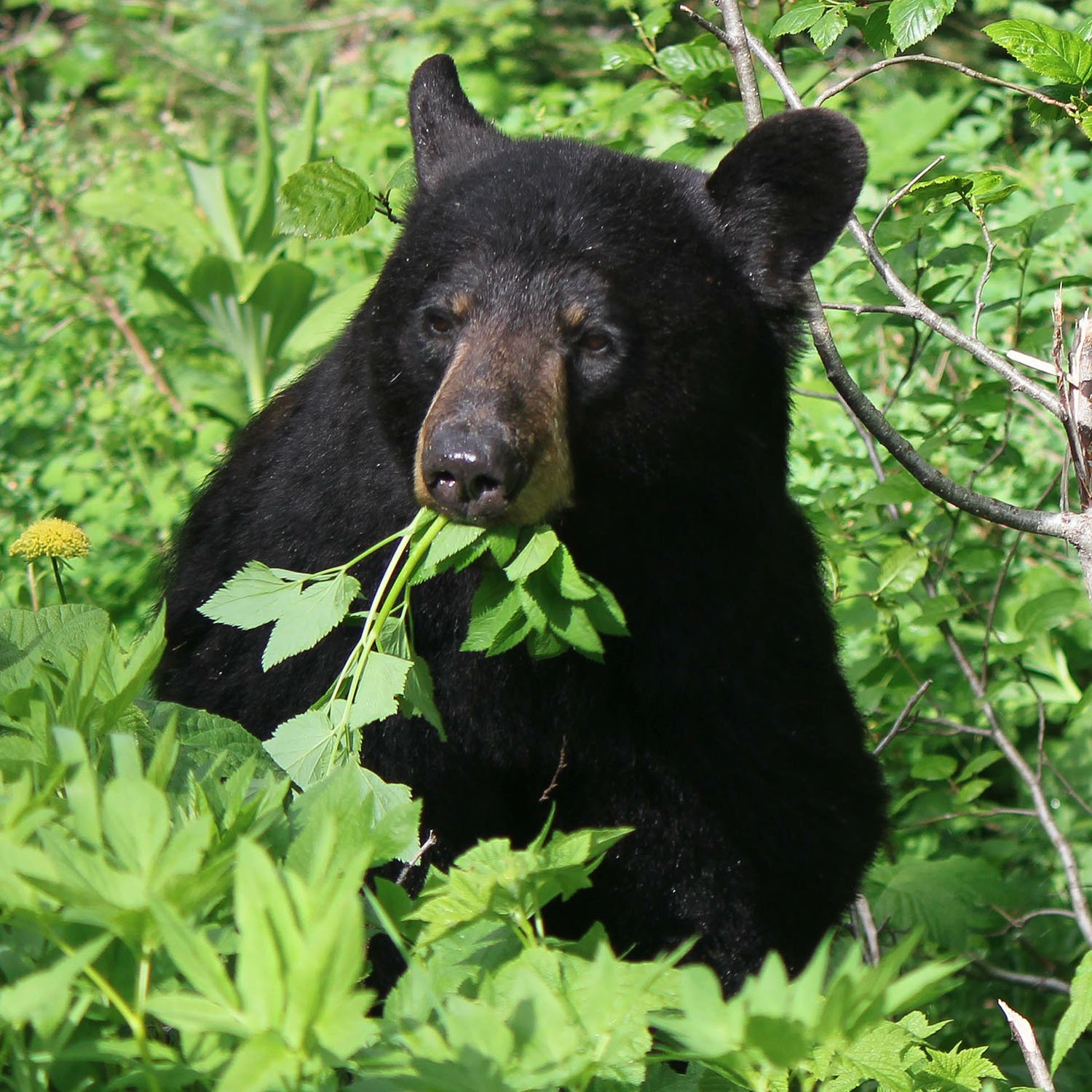
Black Bear
Most bear hunting takes place in Hyde County, which is known for its dense distribution of black bears. Bear season typically runs in November and December, depending on the zone. Some counties allow the use of dogs and unprocessed foods, but others do not. In North Carolina, black bears are usually black with a muzzle of brown fur, and many have a patch of white fur on their chests. There is a bag limit of one black bear per season.
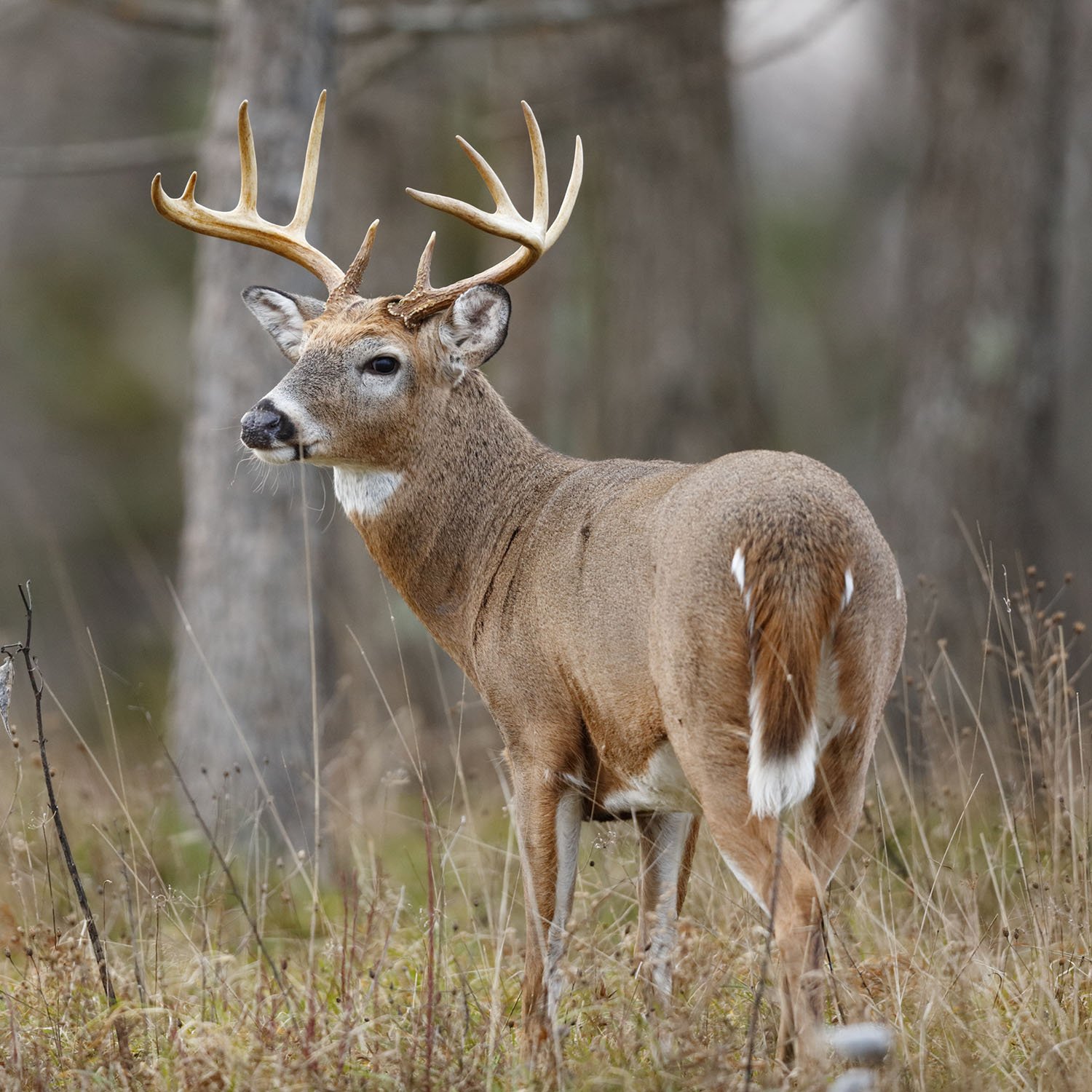
Deer
North Carolina supports a consistent, stable population of deer and trophy bucks. The northern Piedmont area, the Pee Dee River, and the Yadkin River all offer strong population density. It is not permitted to use processed food as bait when there is also an open bear season. North Carolina has a season bag limit of six deer, of which two may be antlered and four may be antlerless.
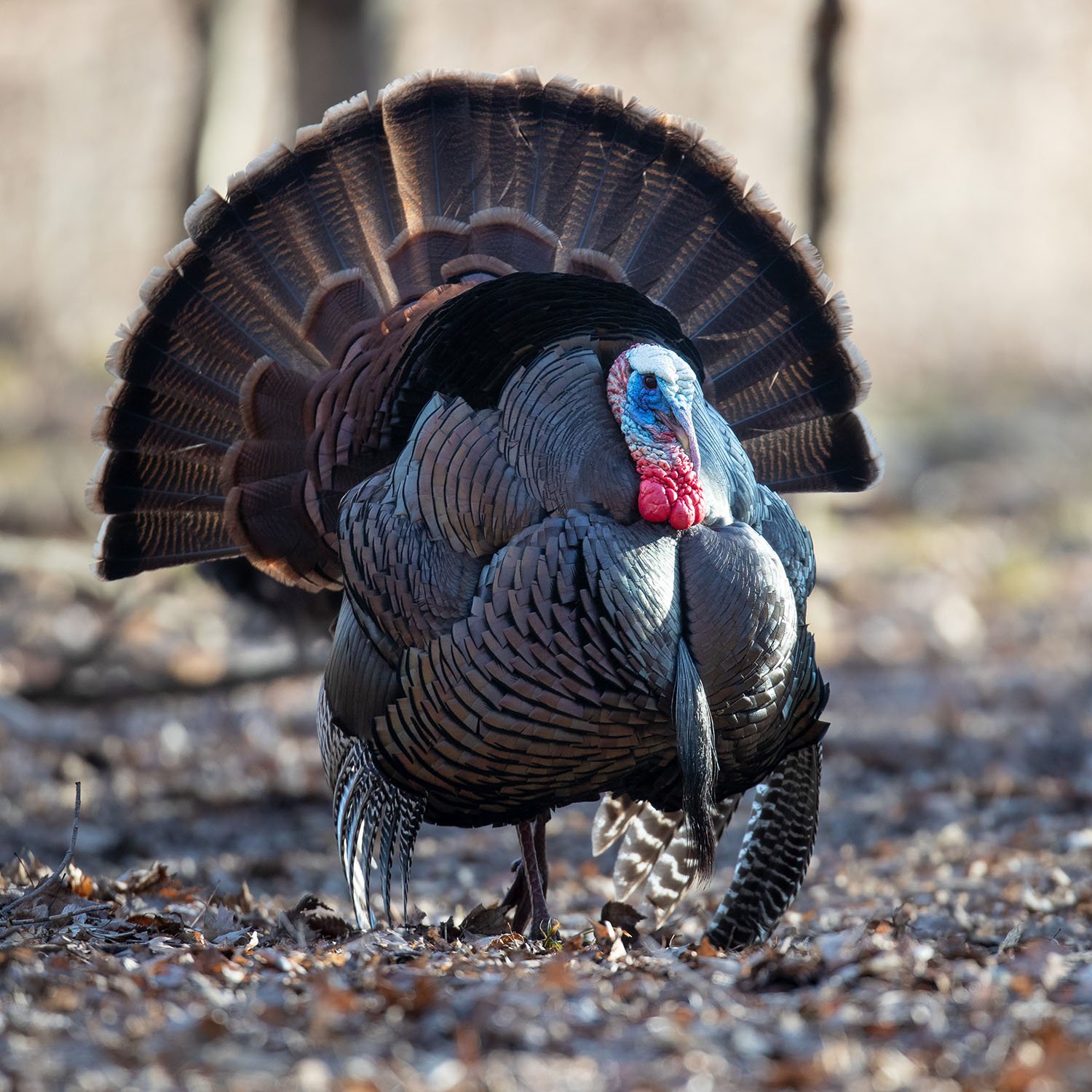
Turkey
North Carolina is home to about 250,000 Eastern turkeys. After some recent instability, this number appears to be growing. North Carolina offers a very diverse range of turkey habitats. Hunters can find gobblers all across the state. North Carolina only offers a spring turkey season, typically in April and May. There is a season limit of two turkeys. It is not permitted to hunt turkeys using dogs, bait, live birds, or any handgun or rifle.
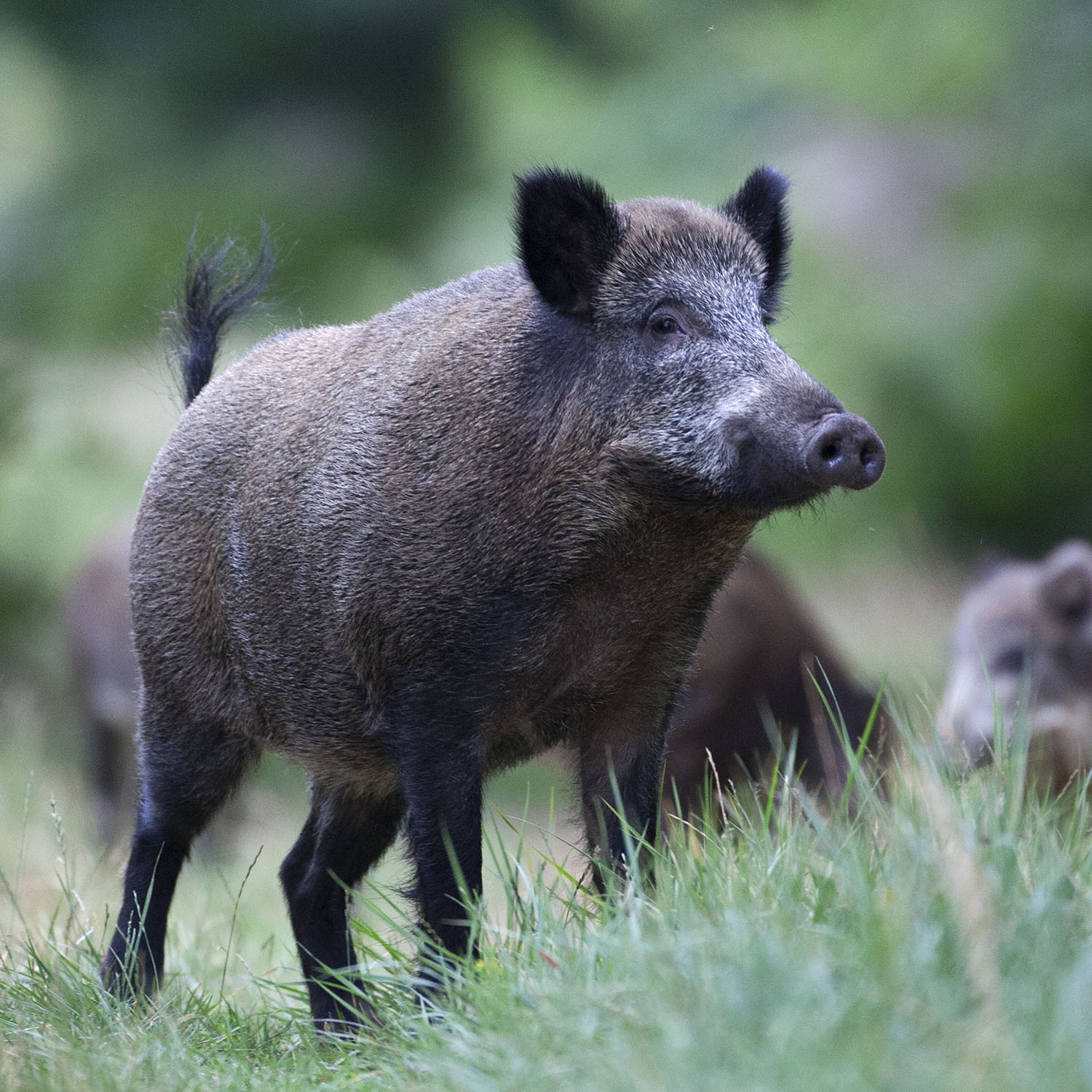
Feral Swine
Currently, North Carolina classifies feral swine as a nongame animal. This means that hunting season is open year-round and there are no bag limits. It is permitted to use artificial lights and electronic calls. Hunters must still have a license to hunt feral swine on game lands, and hunting hours are from one half-hour after sunset to one-half hour before sunrise. Hunters may use corral or box traps to trap feral swine, and they must be euthanized while still in the trap.
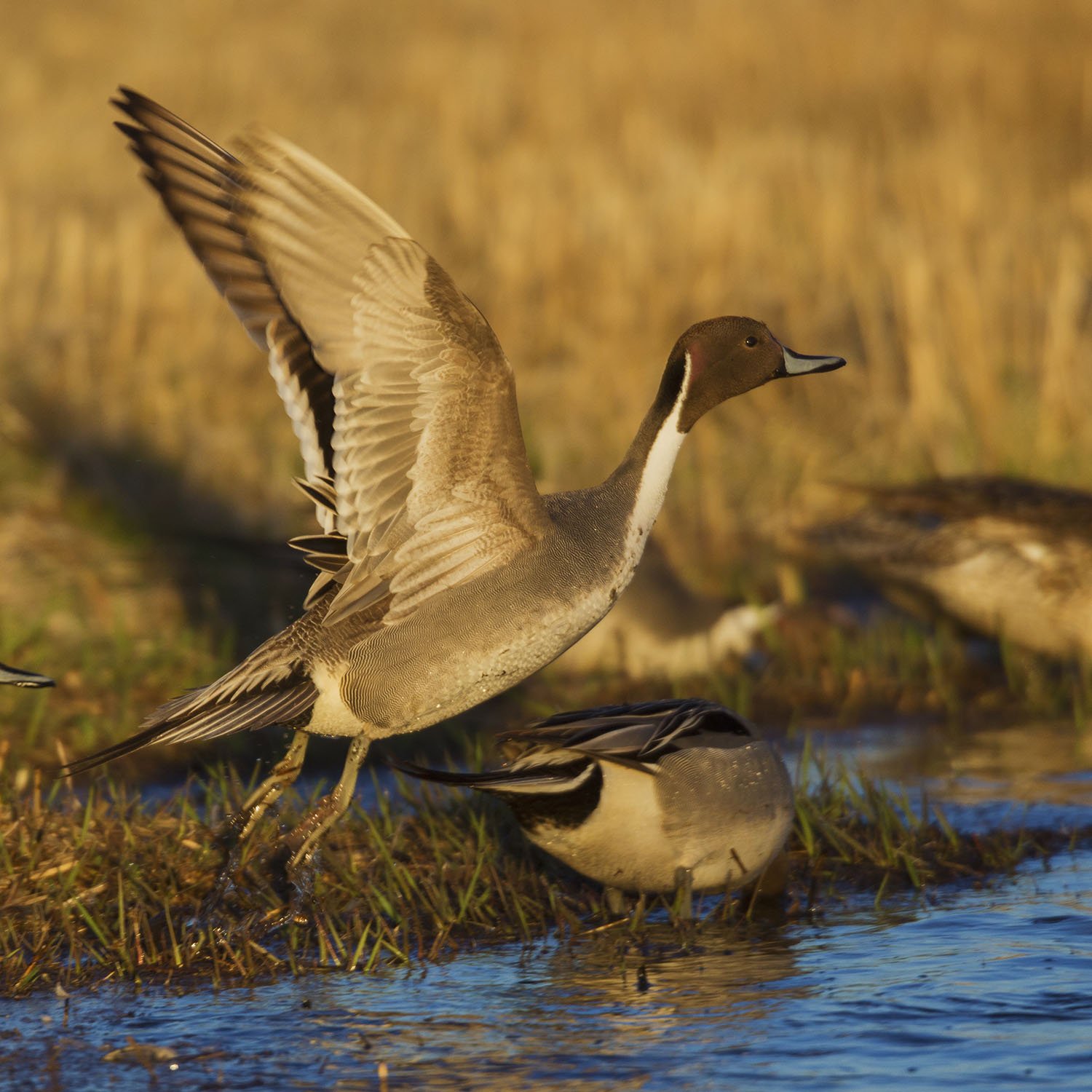
Waterfowl
North Carolina offers significant goose and duck hunting opportunities. The state’s diverse wetland areas are popular stopover spots for many other migratory birds. Mallards, hooded mergansers, gadwall, bluebills, and wigeon are all popular game species in North Carolina. North Carolina requires hunters to use non-toxic shot for waterfowl and coots.
Other North Carolina game species include: Armadillo, Beaver, Bobcat, Coyote, Crow, Fox, Grouse, Nutria, Opossum, Pheasant, Quail, Rabbit, Raccoon, Skunk, Squirrel, Goose, Tundra Swan, Woodcock, Snipe, Doves, etc. found in the "Hunting Seasons" section at bottom of the page.
Where to Hunt
North Carolina has vast amounts of public and private land that have been designated for hunting and recreational use.
Game Lands
The North Carolina Wildlife Resources Commission has allotted two million acres of land as game lands to be used by hunters, anglers, and trappers. These areas are posted with signs to aid hunters in the field. Each piece of game land may be subject to its own restrictions and/or guidelines.
Farmland
The state of North Carolina allows farmers to lease private land to hunters. These pieces of land are subject to the rules and guidelines imposed by their respective owner(s).
Controlled Hunting Preserves
The North Carolina Wildlife Resources Commission maintains Controlled Hunting Preserves for hunting wild birds (other than turkeys) and foxes. Hunting Preserves only accommodate these two types of game.
Licensing Fees
Hunters under age 16 are exempt from the requirement of a hunting license. However, they must have either completed a hunter’s education course or be supervised by a licensed adult hunter.
| License | Resident | Nonresident |
|---|---|---|
| State Hunting 10-Day | N/A | $80.00 |
| State Hunting (does not include big game hunting, the state waterfowl privilege, or the federal duck stamp) | $25.00 | $100.00 |
| State Hunting Comprehensive | $39.00 | N/A |
| Controlled Hunting Preserve Hunting | $22.00 | $22.00 |
| Lifetime Hunting (Comprehensive) | $265.00 | N/A |
| Trapping | $32.00 | $133.00 |
| Trapping | $300.00 | N/A |
Hunter Education
A hunter education course is not required to obtain a hunter’s license in North Carolina. However, the state does offer these courses for free. They can be taken as a combination of online learning and field work or entirely in-person.
Youth Hunting
North Carolina designates a variety of hunting dates and periods for youth hunting each year. Youth under 16 years old are exempt from the requirement of a hunting license, but they must have either completed a hunter education course or be supervised by a licensed adult hunter.
Trapping
North Carolina designates the following animals as furbearing mammals for the purposes of trapping: beaver, bobcat, coyote, gray fox, groundhog, mink, muskrat, nutria, opossum, otter, raccoon, red fox, spotted skunk, striped skunk, weasel. A trapping license is required to take any of these animals by means of a trap.
Beavers may be taken at any time without a license by a landowner if it has caused damage too the landowner’s property. Nutria is considered an invasive species, and there is no closed season or bag limit for trapping nutria east of I-77. North Carolina’s statewide trapping season typically runs from November through February.
Hunting Seasons
| Game | Season |
|---|---|
| Black bear | Oct 14 2023 - Jan 1 2024 |
| White-tailed deer | Sep 9 2023 - Feb 18 2024 |
| Wild Turkey | Apr 8 2024 - May 11 2024 |
| Armadillo | No closed season |
| Beaver | No closed season |
| Bobcat | Oct 16 2023 - Feb 29 2024 |
| Coyote | No closed season |
| Crow | Aug 2 2023 - Feb 24 2024 |
| Jun 5 2024 - Jul 31 2024 | |
| Feral Swine | No closed season |
| Fox | year round take |
| Grouse | Oct 16 2023 - Feb 29 2024 |
| Nutria | No closed season. |
| Opossum | Oct 16 2023 - Feb 29 2024 |
| Pheasant | Nov 18 2023 - Feb 1 2024 |
| Quail | Nov 18 2023 - Feb 29 2024 |
| Rabbit | Oct 16 2023 - Feb 29 2024 |
| Raccoon | Oct 16 2023 - Feb 29 2024 |
| Skunk | No closed season |
| Squirrel - Gray and Red | Oct 16 2023 - Feb 29 2024 |
| Squirrel - Fox | Oct 16 2023 - Jan 31 2024 |
| Waterfowl | Oct 19 2023 - Jan 31 2024 |
| Canada Goose | Sep 1 2023 - Feb 10 2024 |
| Light Goose | Oct 10 2023 - Feb 10 2024 |
| Tundra Swan | Nov 4 2023 - Jan 31 2024 |
| Woodcock | Dec 11 2023 - Jan 31 2024 |
| Snipe | Oct 27 2023 - Feb 28 2024 |
| Doves | Sep 2 2023 - Jan 31 2024 |
*Hunting dates for this species may vary by zone, method of take, or subspecies of animal. Visit the state’s website here to find out more.
Disclaimer: The information provided here is not to be construed as legal advice or acted upon as if it is legal advice: it is provided for informational purposes only. While we strive to provide accurate, up-to-date content, we cannot guarantee the accuracy, completeness, or currency of the information.